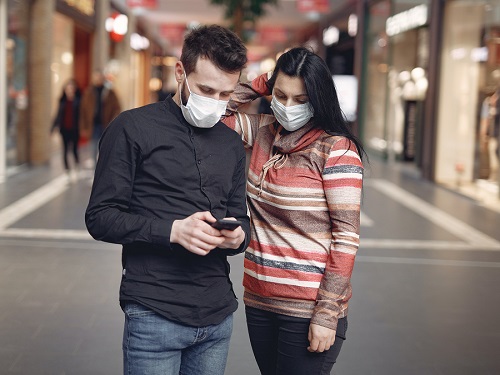NHS App For An “Immunity Passport”

Andrew Bud, chief executive of iProov, the company behind the NHS app, has floated the idea of using facial recognition for Covid-19 “immunity passports”.
App
The iProov-made NHS app system, for Android and iOS, not to be confused with the in-development COVID-19 app, is a system for use in England that allows users to access a range of NHS services via smartphone or tablet.
The app can currently be used to get advice about coronavirus, order repeat prescriptions, book appointments, check symptoms (against NHS information), view the user’s medical records, register a user’s organ donation decision, and to find out how the NHS uses a user’s data.
Facial Recognition
Users of the app have to submit a photo of themselves from an official document such as their passport or driving license which the app system uses as the basis for facial recognition to enable a user to verify their identity and access NHS services via the app.
Each time the user logs in using facial recognition, the system scans a person’s face using their phone/tablet camera which involves the user seeing a short sequence of flashing colours.
The Basis of an Immunity Passport
In support of a suggestion made previously by Health Secretary Matt Hancock, Andrew Bud, chief executive iProov has suggested that the trusted identity system of the NHS app could provide the basis for an “immunity passport”.
Immunity Passports
According to the Lancet, an immunity passport is a “digital or physical document that certify an individual has been infected and is purportedly immune to SARS-CoV-2” (the disease associated with the 2019 COVId-19 virus). The idea of an immunity passport is something that has been considered by governments including Chile, Germany, Italy, the UK, and the USA. An immunity passport could be used to exempt individuals from physical restrictions and could enable them to return to work, school, and daily life.
Issues
While an immunity passport is an option, some of the issues with this idea are that:
– There is no evidence that people who have recovered from COVID-19 and have antibodies are protected from a second infection (as stated by the WHO, April 24).
– A false-positive and an immune status could make that passport holder change their behaviour, despite still being susceptible to infection and able to infect others.
– Artificial restrictions in society could result for those who don’t have an immunity passport, and this could lead to discrimination, inequality, corruption, bias and even to extra costs for those in countries that don’t have access to (free) health care at the point of delivery.
– Immunity passports for some could restrict travel and civil liberties and could even incentivise people to become infected in order to get the benefits that such a passport could bring.
What Does This Mean For Your Business?
All businesses want to provide a safe environment for their staff, their customers, and other stakeholders as we move out of lockdown restrictions where economies still must function in an environment where COVID-19 is still a serious threat. Whereas an immunity passport sounds as though it could indicate that a person is less of a risk e.g. when accessing services, not enough is known about whether a person can contract the virus more than once, thereby limiting the effectiveness and validity of the system. Also, it depends upon how rigidly and widely such a system is used as to its effectiveness, and there are clearly many other issues based around discrimination to consider.
Facial recognition on an app however does sound like it could form a trusted base for a system that requires accurate verification.

